Reviews
Michael Crichton
USA, 1973
Credits
Review by Cullen Gallagher
Posted on 01 October 2011
Source Warner Bros. DVD
Categories 31 Days of Horror VIII
Twenty years before dinosaurs ran amok in Jurassic Park, Michael Crichton was already investigating similar fears in Westworld. Both movies explore the theme of a utopian amusement park gone nightmarishly wrong, as well as mankind’s growing dependence on technologies it can’t control. This latter theme is a staple of the horror/sci-fi genre, and one can see similar concerns about Artificial Intelligence in Frankenstein, 2001: A Space Odyssey, and The Terminator series. Like those other works, Westworld’s terror stems as much from mankind’s hubris and overconfidence as from its knowledge and ingenuity. While Artificial Intelligence marks the pinnacle of humanity’s capacity for invention, there’s also the implicit fear that the creation might become smarter - and deadlier - than its creators.
Westworld is set in a theme park created by the Delos corporation. For $1000 a day, Delos offers the experience to live out your wildest fantasies in one of three arenas: Romanworld, Medievalworld, or Westworld. Eat, drink, fornicate, and kill in any of these three historic time periods. The experiences are all real, but there is no threat of injury. The inhabitants of each world are robots who have been programmed not to harm the tourists, and overseeing each robot is a human counterpart at a computer. Even the humans are incapable of harming one another, as the guns have a sensor that refuses to fire if it detects warm blood. Westworld was conceived to be the perfect getaway, a place where - as the original theatrical poster advertised - “nothing can possibly go wrong!”
Richard Benjamin and James Brolin star as Peter Martin and John Blane, two buddies who head to Westworld looking to act out their sagebrush fancies. At first, everything is perfect - lots of sex, shooting, drinking, fighting, and even an explosive jailbreak - until a robot gunslinger (Yul Brenner) refuses to leave them alone. Twice Benjamin has shot and killed the gunslinger, but when he shows up a third time, the robot is shooting back—and his bullets are very real. All across Westworld, Romanworld, and Medievalworld, the robots are violently rebelling. The computer controls have malfunctioned, and the human supervisors are stuck in the control booth, leaving Peter and John, and all the rest of the tourists, to fight for their lives.
Stylistically, Crichton nails the Western atmosphere with just the right balance of reverent pastiche and cliché. The shootouts are as bloody as a Sam Peckinpah movie, and the barfights unruly and boisterous enough to make John Ford proud. The casting decisions are also perfect. Who better to embody the fantasy gunslinger than Yul Brenner, whose fast-drawing character from The Magnificent Seven still stands as one of the iconic Western roles? Brenner’s stone-face and cool stare make him a convincing robot. With his hands on his belt buckle and his casual cowboy strut, he’s like the old West equivalent of Jason from Friday the 13th—despite his slow speed, he’s always one step behind you, no matter how fast you run. As the greenhorn dude, you couldn’t ask for a better misfit than Richard Benjamin, who had made his name as Phillip Roth’s on-screen alter-ego in Goodbye, Columbus and Portnoy’s Complaint. Benjamin’s neurotic gestures and New York accent are totally out of place in the West, which makes his character in Westworld all the more credible. As Peter Martin, Benjamin isn’t supposed to be comfortable with gunfights, saloon gals, or rotgut whisky. Benjamin plays the role for comedy at first, but he makes a smooth and believable transition into all-out panic in the film’s second half when the robots start fighting back. The rest of the actors are similarly well cast for archetype and appearance.
The horror genre isn’t always defined so much by how scared an audience member is during the movie, but by the intrinsic terror of its concept. To be frank, Westworld will make you laugh more than it will make you shriek—the first half of the movie is, after all, essentially a Western comedy. But that doesn’t diminish the realistic fear that is at the core of the movie - and which is becoming closer to reality everyday - and that is: how much are we designing our own downfall? Is Artificial Intelligence making humankind obsolete? At what point will we create something so perfect that it surpasses our own capacity for controlling it? And will we recognize when we have crossed that line? Westworld wasn’t the first film to ask these questions, nor will it be the last, but the fact that such inquiries persist suggests that society still has reservations about the very same technological advances it celebrates.
More 31 Days of Horror VIII
-
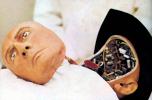
Westworld
1973 -
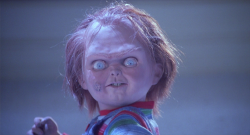
Child’s Play
1988 -
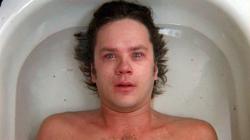
Jacob’s Ladder
1990 -
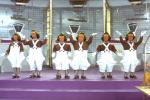
Willy Wonka and the Chocolate Factory
1971 -
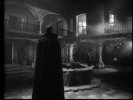
El Vampiro
1957 -
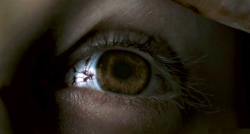
28 Weeks Later
2007 -
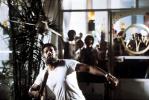
Piranha II: The Spawning
1981 -
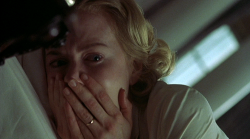
The Others
2001 -
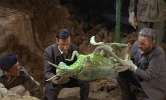
Quatermass and the Pit
1967 -

I Know Who Killed Me
2007 -
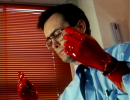
Bride of Re-Animator
1990 -
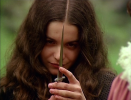
Alucarda
1978 -
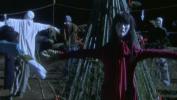
Kakashi
2001 -

Seizure
1974 -
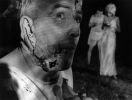
Night of the Living Dead
1968 -
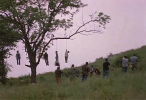
Night of the Living Dead
1990 -
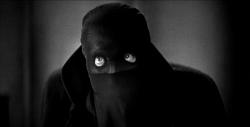
The Bat Whispers
1930 -
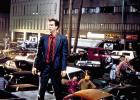
Miracle Mile
1988 -
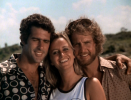
Tintorera
1977 -
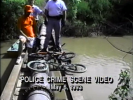
Paradise Lost
1996 -
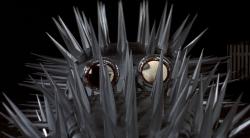
The Cars that Ate Paris
1974 -

Ginger Snaps
2000 -
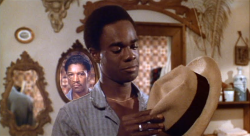
J.D.’s Revenge
1976 -
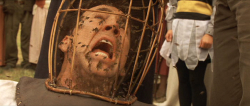
The Wicker Man
2006 -
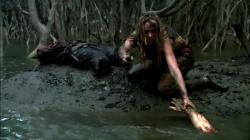
Black Water
2007 -
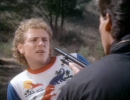
Don’t Panic
1988 -
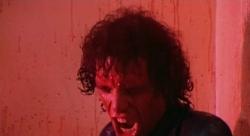
The Driller Killer
1979 -
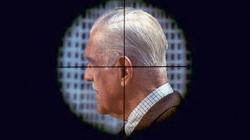
Targets
1968 -
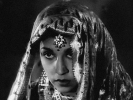
Mahal
1949 -
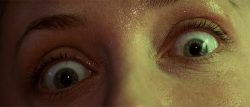
Event Horizon
1997
We don’t do comments anymore, but you may contact us here or find us on Twitter or Facebook.



